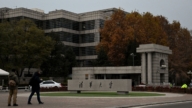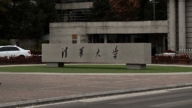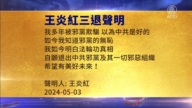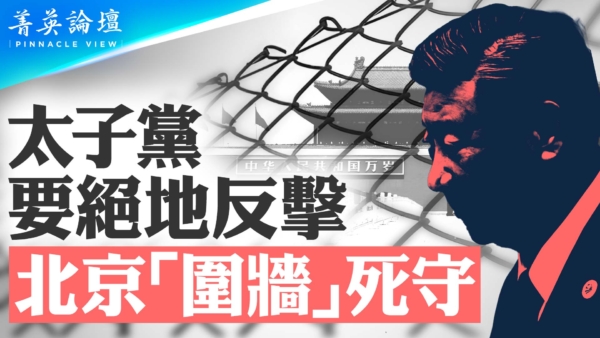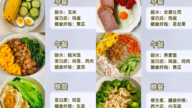【新唐人2012年12月14日讯】根据国际人才咨询公司“ECA国际”对海外派驻员工所做的一项调查显示,北京、上海两城市的日常生活成本,都超过了历来生活成本更高的新加坡和香港等城市。在亚洲生活费用最贵的50个城市中,中国共有16个,占总数的约三分之一。
北京在亚洲最贵50个城市中名列第五,前四名包括东京在内的日本城市。第六是韩国首都首尔,第七是上海、第八是新加坡、第九是香港。
ECA说,由于人民币升值和通货膨胀,京沪两市的日常生活成本都超过了历来生活成本更高的新加坡和香港等城市。在ECA 国际调查的全世界425个城市中,北京从去年的第35名大幅度上升到第22名。上海则从第41位上升至第26位最贵城市。
前50名中,其他的中国城市包括广州、深圳、沈阳、天津、青岛、大连、重庆、苏州、成都、武汉、厦门、南京和西安。
北京独立制片人朱日坤表示,大陆的油价,房价以及日常生活用品价格都非常高。
北京独立制片人朱日坤:“1.39比如米,就跟普通人的生活紧密相连的东西,它的成本都在上升的特别快,这一两年。比如大米,以前可能是一块多钱,现在随便一斤米两块多,两块五六,那它可能上升幅度有百分之五六十。所以这个速度是非常惊人的。”
广州画家何国泉说,十八大开完之后,物价慢慢都起来了。
广州画家 何国泉:“3.11日常的生活用品现在都在普遍往上涨,表面上看好像房价在往下跌,事实上单是每天的鸡鸭鱼肉,鸡蛋,比如鸡蛋前一段时间还可以达到四块多钱,现在都变成五块多了。就几天时间就涨得很厉害。”
北京网站主编贾元良则认为,蔬菜价格今年跟去年相比差不了多少。
北京网站主编 贾元良:“3.22我觉得今年北京蔬菜的价格跟去年相比,我的感觉基本上持平。贵也贵不到哪里去。比如像现在蔬菜价格也就是一斤四块钱或到五块钱人民币,有的白菜也便宜,一斤也就是一块多钱人民币的样子。”
朱日坤表示,物价上涨对工薪阶层造成压力。
朱日坤:“2.30对大家来说,这肯定是个压力。可能你很多钱,你的收入都要用在特别基本的生活保证方面,对任何一个靠普通薪水生活的人,这都是很沉重的负担。”
排名大幅上升的其他中国城市还有苏州和成都。苏州的外国人生活成本从去年亚洲第113名上升到23名,成都从亚洲第114名上升到24名。香港排名也有所上升,从2011年世界第58名上升为32名。
ECA亚洲区总监关礼廉(Lee Quane)表示,中国的通货膨胀和人民币相对其他货币升值,是城市日常生活成本大幅上升的推动因素。关礼廉说,中国的情况实质上是物价上涨比西方更快,这使北京在排名上超越了其他一些城市。
ECA的计算包括日常生活用品和食品、外出就餐、交通、服装等方面,不包括居住成本或上学费用。
另一方面,尽管预期未来物价将走高,专家认为,大陆货币政策不致大幅转向。
据报导,大陆国家统计局公布的11月“中国大陆消费者物价指数(CPI)”,与去年同期相比,食品价格上涨3%,非食品价格上涨1.6%。另外,“中国工业生产者出厂价格指数(PPI)”较去年下降2.2%,已是连续9个月负成长。
报导说,11月以后因为气温降低,蔬菜供应量减少,使得蔬菜价格持续上涨。
国务院参事室特约研究员姚景源声称,靠近年底时,物价回升是意料中的事,接下来又是元旦和过年的消费旺季,中国大陆的物价升势将持续一段时间。
采访编辑/秦雪 后制/萧宇
Beijing and Shanghai More Pricey than Hong Kong & Singapore
The latest survey from ECA International towards expatriates
shows that both Beijing and Shanghai have overtaken Singapore and Hong Kong in costs of living.
Traditionally, Singapore and Hong Kong
are famous for being pricey.
China holds 16 places among Asia’s
top 50 most expensive cities.
Beijing is ranked the 5th most expensive location in Asia.
Japanese cities, including Tokyo, occupy the top four places.
The 6th is Seoul, followed by Shanghai, Singapore,
and Hong Kong.
ECA’s survey says, due to inflation and
the strengthening of the RMB,
living costs in Beijing & Shanghai have surpassed
traditional pricey cities like Singapore and Hong Kong.
Beijing rose to 22nd from last year’s 35th
in the ranking of the global 425 cities.
Shanghai moved up to 26th from its
previous position in 41st place.
Asia’s top 50 most expensive locations cover Guangzhou,
Shenzhen, Shenyang, Tianjin, Qingdao, Dalian, Chongqing,
Suzhou, Chengdu, Wuhan, Xiamen, Nanjing and Xi’an.
Beijing-based independent filmmaker, Zhu Rikun, affirms
very high prices of oil, housing and daily necessities in China.
Zhu Rikun: “With rice or stuff related to ordinary living,
all have shot up, especially over the last couple of years.
Previously, rice prices were over one yuan per Jin (0.5 kg),
now rice of very mediocre quality costs about 2.6 yuan per Jin.
It has increased by 50%-60%.
A sharp increase, really."
Guangzhou-based painter, He Guoquan, says that after
the 18th Party Congress ended, prices have gone up gradually.
He Guoquan: “Costs of living have all risen.
Apparently, housing prices are dropping, but the cost
of daily meat and eggs have all soared.
Egg prices surged in recent couple of days, costing about
five yuan per Jin, up from the previous price of just over four yuan."
Jia Yuanliang, website editor in Beijing, says that
vegetable prices are nearly the same as last year.
Jia Yuanliang: “I feel Beijing’s vegetable prices
are basically flat this year.
Vegetable prices are four or five yuan per Jin.
Chinese cabbage is cheap, just over one yuan per Jin.”
Zhu Rikun says that price increases have put pressure
on the wage-earning class.
Zhu Rikun: “It’s certainly a pressure for ordinary masses.
Most of their income goes to basic life expenses.
For any ordinary salaried people,
this is a very heavy burden indeed.”
Inflation and a strengthening of RMB against major
currencies are, “two factors that have together contributed
to pushing up the cost of living in Chinese cities significantly,”
said Lee Quane, Regional Director, Asia for ECA International.
Mr. Quane said, “Essentially what’s happening in China
is that prices are rising at a faster rate than they are in the West,
and that’s caused Beijing to leapfrog all those other locations
in the rankings,” according to a Wall Street Journal news report.
ECA’s survey factors include daily necessities, food,
meals out, transportation, clothing and more. It excludes the cost of housing or school fees.
The increase of prices is expected to continue.
Experts said that there may not occur a big shift
in China’s monetary policy.
China’s official data on Consumer Price Index (CPI)
for November 2012 was recently released.
It shows that food prices rose by 3% compared to last year,
and non-food prices were up 1.6%.
China’s latest Producer Price Index (PPI) dropped by 2.2%,
for the ninth straight month.
The reason for the continuous rising of vegetable prices
was attributed to low temperature in this November, which triggered supplies, said China’s media.
Reportedly, Yao Jingyuan, researcher from Counselor Office
of the State Council, claimed that rising prices near the year-end is expected.
The next expected will be New Year’s Day and Chinese
New Year, both peak consumptions.
Therefore, China’s prices will continue to rise,
according to Yao.




